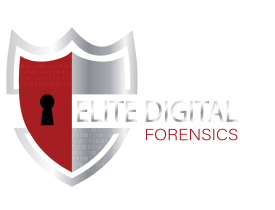
In today’s digital age, where virtually every aspect of our lives intersects with technology, the role of digital forensics has become increasingly critical. Digital forensics is a broad term that encompasses a wide range of services aimed at uncovering, analyzing, and preserving data from digital devices in a way that is legally admissible. Below, we explore the various subcategories of digital forensic services, shedding light on this intricate field and its importance across different sectors.
Computer forensics is perhaps the most well-known branch of digital forensics. It involves the extraction and analysis of data from computer systems and networks to solve crimes that range from data theft to cyberattacks. Specialists in computer forensics recover deleted files, investigate hacking incidents, and trace unauthorized intrusions into systems.
As smartphones become central to our personal and professional lives, mobile device forensics has grown in significance. This subcategory focuses on recovering data from mobile phones, tablets, and other portable devices. It covers everything from retrieving text messages, calls, and emails to more complex data such as app-specific data and GPS location tracking.
Network forensics involves monitoring and analyzing network traffic, both local and on the internet, to gather insights about the source of cyber threats or attacks. This field is crucial for identifying unauthorized network intrusions, intercepting data breaches, and ensuring network security.
This subcategory involves the study of structured data with the aim of discovering and analyzing patterns of fraudulent or anomalous activities. Forensic data analysts often work with financial records to uncover hidden assets in divorce cases, to reveal fraud in business environments, or to assist in bankruptcy analyses.
With the rise of cloud computing, cloud forensics has become a vital area of expertise. This practice addresses the challenges of investigating data stored in the cloud. Since data might be distributed across different servers and regions, professionals in this field must navigate legal and technical challenges to extract this data effectively.
The surge in cryptocurrency use has given rise to a new niche in digital forensics. Cryptocurrency forensics involves tracing digital currency transactions to prevent and investigate crimes such as money laundering and illegal purchases on the dark web.
A subset of digital forensics, cybersecurity forensics, deals with identifying the root causes of cyberattacks and enhancing future protection against such threats. It involves detailed analyses of cyberattack patterns and breach points.
This growing field focuses on gathering data from social media platforms to support legal cases. It involves analyzing posts, messages, friend lists, and even location check-ins to gather evidence in cases ranging from harassment and cyberbullying to more severe criminal activities.
Email forensics specifically deals with recovering and analyzing emails to find evidence of cybercrimes, fraud, or other illegal activities. This includes examining email headers, tracing the origins of messages, identifying spoofed emails, and recovering deleted emails. Email forensics is crucial in both corporate and legal settings where email communication can often contain critical evidence.
With the proliferation of Internet of Things (IoT) devices, from smart home systems to wearable technology, IoT forensics has emerged as a crucial discipline. This field involves the analysis of data generated by connected devices which can be crucial in solving various types of crimes, from burglaries involving smart home technology to sophisticated hacks into interconnected corporate networks.
Digital forensics services are crucial across various sectors. In law enforcement, they are fundamental in solving crimes that involve digital media. In corporate settings, digital forensics helps protect sensitive information and intellectual property, and in personal disputes, such as divorce cases, digital forensics can uncover crucial evidence regarding asset disclosure.
As our reliance on digital technologies grows, so does the role of digital forensics. Each subcategory within this field offers specialized knowledge and tools designed to navigate the complexities of the digital landscape. Understanding these different services is not just relevant for tech professionals but also for individuals and organizations across all sectors looking to safeguard their information and ensure justice in the digital realm.
The landscape of digital forensics is continually evolving, with new subcategories emerging as technology advances. As we look to the future, the importance of this field will only increase, highlighting the need for continued education and adaptation in the techniques and tools used in digital forensic investigations. At Elite Digital Forensics we specialize in each area of Digital Forensics provides clients with insights into the data to uncover critical evidence. Contact us today for a Free Consultation
Elite Digital Forensics is a Professional Digital Forensics and Cyber Investigative Company that provides services nationwide.